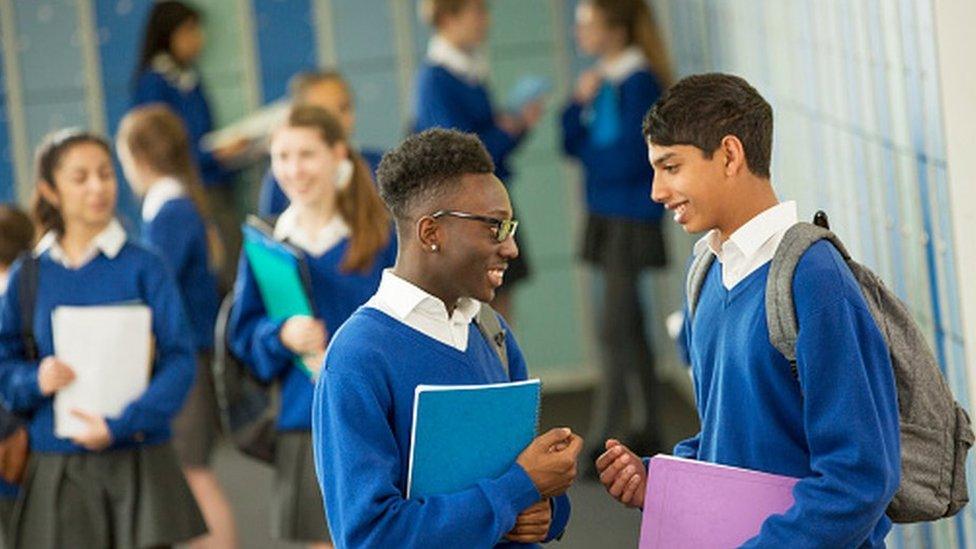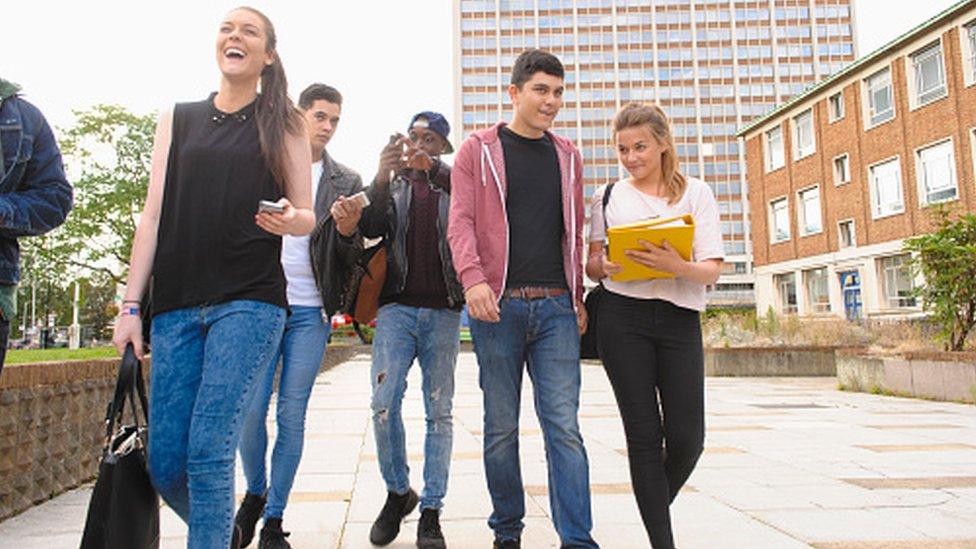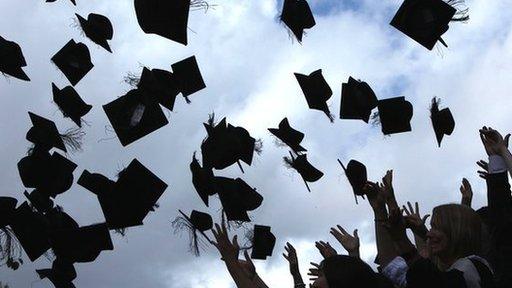Fewer pupils expecting to go to university, says survey
- Published
- comments

The number of secondary school pupils in England and Wales expecting to go on to university has fallen for the second year in a row, a survey has found.
While a high proportion of 11 to 16-year-olds (74%) do plan to study for a degree, this figure is the lowest since 2009, the Sutton Trust survey suggests.
It is down from 77% last year and 79% in 2015, from a high of 81% in 2013.
The government said the reality was that entry rates for 18-year-olds had been rising every year since 2012.
Figures from the university admissions service, Ucas show that 32.5% of 18-year-olds in England and 29.5% in Wales went into higher education last year - the highest recorded entry rate for both countries.
'Did not like the idea'
The Sutton Trust said its findings were an important indicator of pupils' plans before they took their GCSEs.
The annual poll, which this year quizzed 2,612 children in Years 7 to 11 across the two countries, found:
one in seven (14%) said they were unlikely to go on to higher education, compared with 11% last year and 8% in 2012
of these, seven in 10 said they did not like the idea of going to university or did not enjoy studying
nearly two-thirds (64%) of those unlikely to go cited financial issues, such as wanting to start earning as soon as possible and concern over debt
more than two in five (44%) thought they were not clever enough, or would not get good enough results
a similar proportion (42%) did not think they would need a degree for the jobs they wanted to do
Of those who said they were likely to study for a degree, around half (51%) said they were worried about the cost of higher education - up from 47% last year.
The biggest money concern was tuition fees, followed by having to repay student loans for up to 30 years and the cost of living as a student.

Sir Peter Lampl, chairman of the Sutton Trust, said: "It is no surprise that there has been a fall in the proportion of young people hoping to go into higher education.
"With debts up to £57,000 for poorer graduates and soaring student loan interest rates, the system is badly in need of reform.
"This reform should include means-testing tuition fees and restoring maintenance grants so poorer students face lower fees and lower debt on graduation."
'Stark gaps' between groups
The Sutton Trust survey data is published as the director of the Office for Fair Access, Prof Les Ebdon, says there needs to be much greater progress on improving access to higher education for people from under-represented groups in England.
Prof Ebdon said: "Although much has been achieved, our higher education system does not yet offer true equality of opportunity - there are still stark gaps between different groups.
"Further, faster change is imperative. Anything less will fail our students, our economy and our society."
Universities Minister Jo Johnson said the government's student finance system ensured that costs of higher education were split fairly between graduates and the taxpayer.
"However, there is still more to do to ensure that students get value for money. That is why we have created a new regulator, the Office for Students, that will hold universities to account for teaching quality and student outcomes through the Teaching Excellence Framework.
"We also want technical education to stand side-by-side with traditional academic routes. We are reforming and investing in apprenticeships and technical qualifications to allow people to choose a route that is right for them."
- Published29 June 2017

- Published30 January 2015
